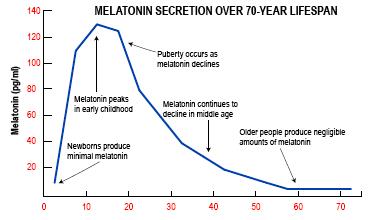Yes, PD definitely seems to be one of those diseases that just keeps on giving and giving, and not in a good way! This article link explains how PwP may be at increased risk for Leukemia by 10 times and Colorectal Cancer by 2 times if they happen to have a specific gene mutation in the LRRK2 gene.
parkinsonsnewstoday.com/201....
Here is a quote from the article :
>>> ' The pooled analysis revealed that individuals with LRRK2 G2019S were 9.84 times more likely to develop leukemia, and 2.34 times more likely to develop colon cancer, in comparison with idiopathic Parkinson’s patients. ' <<<
In the following abstract link, which is a review of studies regarding Melatonin and Leukemia, it is shown that melatonin has multiple activities that would work against Leukemia :
pubmed.ncbi.nlm.nih.gov/343...
In the following study, it was suggested that melatonin has anti Colorectal Cancer effects via multiple pathways and effects including induction of autophagy.
pubmed.ncbi.nlm.nih.gov/344...
Given the fact that it is well established that melatonin production declines with age and even further decline due to PD, it may not be a bad idea to consider the results of the 10 mg/day of melatonin in PwP study that showed positive effects in terms of positive effects on non motor symptoms in PwP.
pubmed.ncbi.nlm.nih.gov/324...
Lastly, it is worth mentioning that melatonin acts to inhibit LRRK2 :
frontiersin.org/articles/10...
A relevant quote :
' Genetically, mutations of the leucine-rich repeat kinase 2 (LRRK2) gene associated with sleep disorders and PD were significantly decreased when melatonin was administered (Sun et al., 2016)'.
It seems like melatonin, which is naturally produced in humans, animals and plants may be a supplement that just keeps on giving and giving, but in a good way of course!
Art

